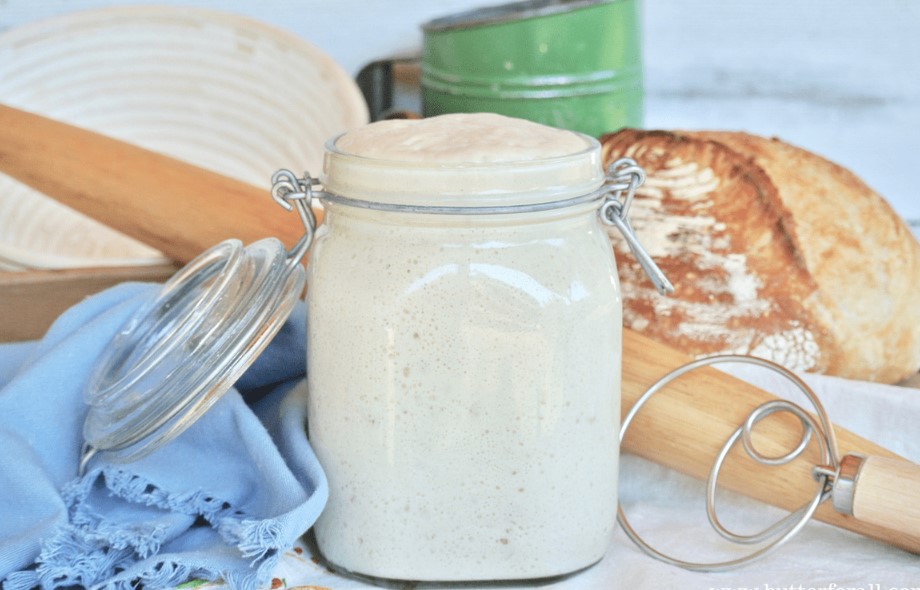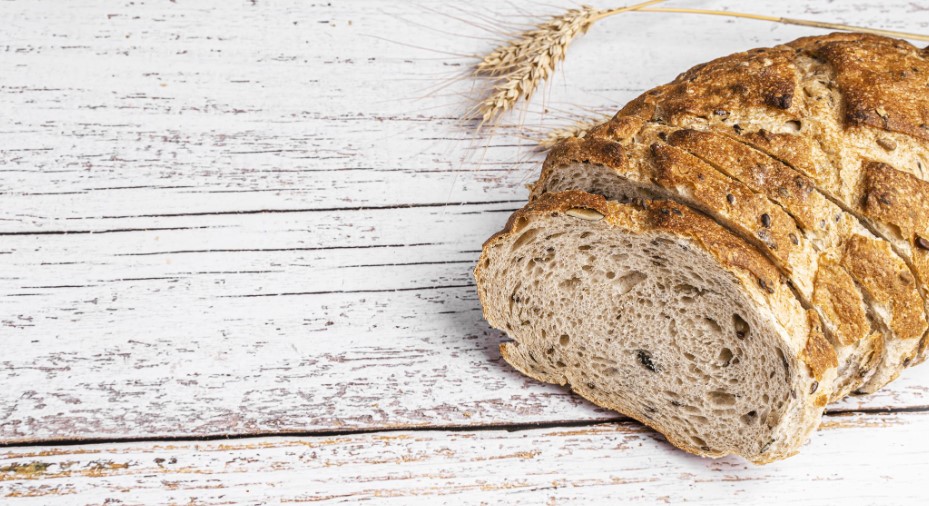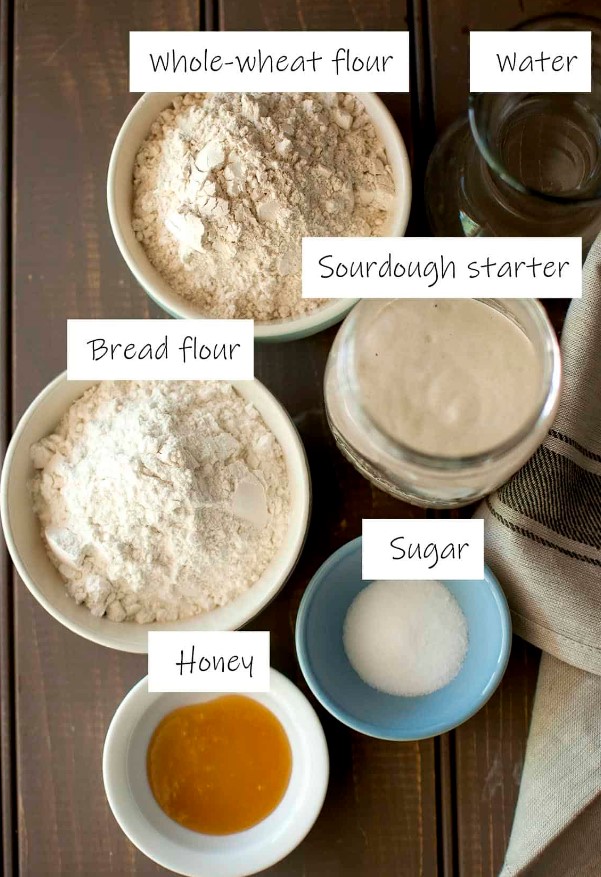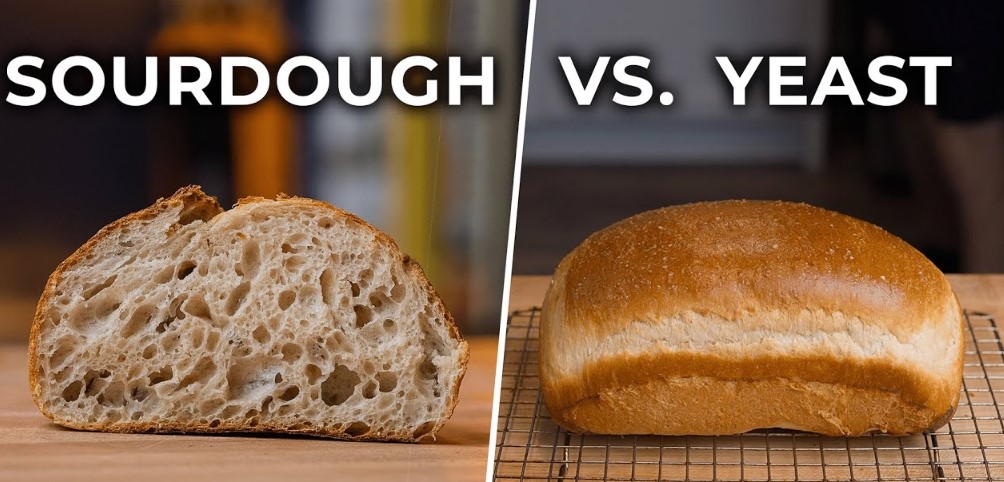Is Sourdough Bread Good for Weight Loss?
Sourdough Bread has earned recognition as a potential partner in the fight against weight gain thanks to its unique tang and rustic appeal. However, is its reputation based on fact or another diet fad? We will find out, “Is sourdough bread good for weight loss?” in this blog post.
Dietary decisions are crucial for maintaining a healthy weight and living a better lifestyle. When trying to lose those excess pounds, the thought of bread may bring up images for many people of sinful indulgence. It is a rising star in the nutrition industry, dispelling this myth.

Understanding Sourdough Bread
Instead of using artificial yeast, sourdough bread is a type of bread that ferments naturally. Due to the fermentation process, sourdough bread has a distinct sour taste, which sets it apart from other breads. Here’s how it’s usually done:
Starter Culture: The first step in making sourdough bread is a starter culture, often known as “sourdough starter” or “vain.” Wild yeast and lactic acid bacteria are drawn into a flour and water mixture used as a starter.
Fermentation: After being combined, the starter is left to ferment for several days to a week. Wild yeast and bacteria in the fermentation process break down the flour’s carbohydrates to produce carbon dioxide gas and organic acids. This gives sourdough bread its distinctive flavor and causes the dough to rise.

Dough Formation: To make dough, the starter is mixed with additional flour, water, and occasionally salt after fermentation. The ideal bread form is created by kneading and shaping this dough.
Second Rise: The dough experiences a second rise, further developing its taste and structure.
Baking: The dough is then baked in an oven to produce a crispy, tasty loaf of bread.
Sourdough Bread and Weight Loss
It’s essential to comprehend the intricacies and consider how sourdough bread fits your overall diet and lifestyle before including it in your weight reduction quest.

Enhancing Digestibility
For some people, the fermentation in sourdough bread can make it easier to digest. This may be especially helpful if you have digestive sensitivity or experience bloating from ordinary bread.
Glycemic Index Lower
The glycemic index (GI) of sourdough bread is frequently lower than that of some conventional white bread. Lower GI foods typically affect blood sugar levels more gradually, which can help balance energy levels and lessen cravings.

Nutritional Value
Because of the fermentation process, sourdough bread is more nutritious than the grains used to make it. Despite being lower in added sugars and preservatives than commercial bread, it offers essential vitamins, minerals, and complex carbohydrates.
Conscious Eating
Choosing sourdough bread can promote eating with greater awareness. Its distinctive flavor and texture may cause you to relish every morsel, making for a more pleasurable and rewarding meal overall.
Portion Regulation
Portion control is important for any type of food. Although sourdough bread has some benefits, it should be consumed in moderation for weight loss. Pay attention to serving size to prevent consuming too many calories.
Ingredients in Sourdough Bread
The main components of sourdough bread are:

Flour: Though rye or spelled can also be used, wheat flour is most frequently utilized. The carbohydrates required for fermentation are found in flour.
Water is necessary to make the dough and the fermentation process easier. The flour is hydrated, and the structure of the gluten is formed.
Starter Culture: As previously explained, wild yeast and lactic acid bacteria are present in the starter culture, composed of flour and water. These microbes carry out the fermentation process.
Salt: To improve the flavor of the bread and manage the fermentation process, salt is added. Additionally, it controls yeast activity, which strengthens the dough.
Difference Between Sourdough and Regular Bread
Regular bread, frequently baked with commercial yeast, differs from sourdough bread in several respects.

Flavor: Sourdough relies on natural fermentation for leavening, whereas conventional bread utilizes artificial yeast. Sourdough gets its distinctive flavor and texture from this.
Taste: Sourdough bread differs from conventional bread because it has a tangy, slightly sour flavor.
Digestibility: Sourdough bread’s fermentation process partially breaks down phytic acid and gluten, making it potentially simpler to digest for some people than ordinary bread.
Preservatives: Unlike commercially produced ordinary bread, sourdough bread often has fewer additives and preservatives.
Fermentation Process in Sourdough Affects its Digestibility
Let’s investigate how the fermentation process in sourdough bread influences its digestibility and how this can affect weight control, especially for people with sensitivities:
Lactic Acid Enzymes
As enzymes, wild yeast, and lactic acid bacteria interact with the dough during the fermentation of sourdough bread. This reaction produces lactic acid and several enzymes. These enzymes begin to break down the complex carbohydrates (starch) and proteins of the flour, particularly amylase and protease.

Reduction in Gluten
The sour fermentation process can partially break down the gluten protein. Although sourdough is not completely gluten-free, it may contain less intact gluten than regular bread. It may provide less intestinal discomfort for those who are sensitive to gluten.
Reduction of Phytic Acid
Phytic acid, an anti-nutrient in grains, can impair the absorption of some minerals, including calcium, iron, and zinc. The phytic acid concentration of sourdough bread decreases during fermentation, possibly improving the bioavailability of certain important minerals.
Conclusion
By encouraging digestive relaxation, satiety, and portion control, sourdough bread can improve weight management efforts when eaten consciously and in moderation. It’s a great choice for a well-rounded, health-conscious diet because of better digestion and potential benefits for people with sensitivities. However, remember that there is no one-size-fits-all strategy for weight management, and appropriate decisions must be made based on personal goals and dietary factors.
References & Resources
Recommended Articles
Why Sourdough Bread Is Better Than Most Bread (Video)
FAQs – Is Sourdough Bread Good for Weight Loss
Is sourdough bread good for weight loss?
Yes, sourdough bread may help with weight loss due to its lower glycemic index and calorie content.
Is sourdough bread gluten-free?
No, sourdough bread is not gluten-free. However, it may be easier to digest for people with gluten sensitivity.
Where can I buy sourdough bread?
Sourdough bread can be found at many bakeries and grocery stores. You can also make your own sourdough bread at home.
Is sourdough bread expensive?
Sourdough bread can be more expensive than other types of bread, but it is worth the investment for its health benefits.
What is the glycemic index of sourdough bread?
The glycemic index of sourdough bread is typically around 54, which is lower than regular white bread.
What is the fiber content of sourdough bread?
Sourdough bread typically contains around 3-4 grams of fiber per slice.
What is the calorie content of sourdough bread?
A slice of sourdough bread typically contains around 120-140 calories.
Is sourdough bread easy to digest?
Yes, sourdough bread is generally considered to be easy to digest.







